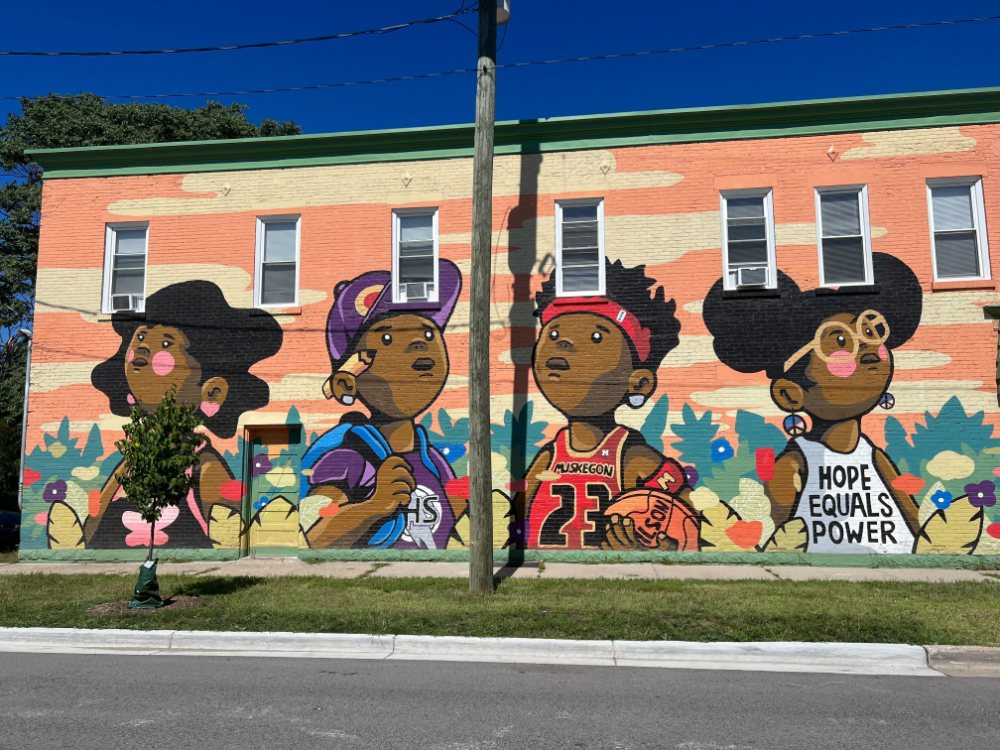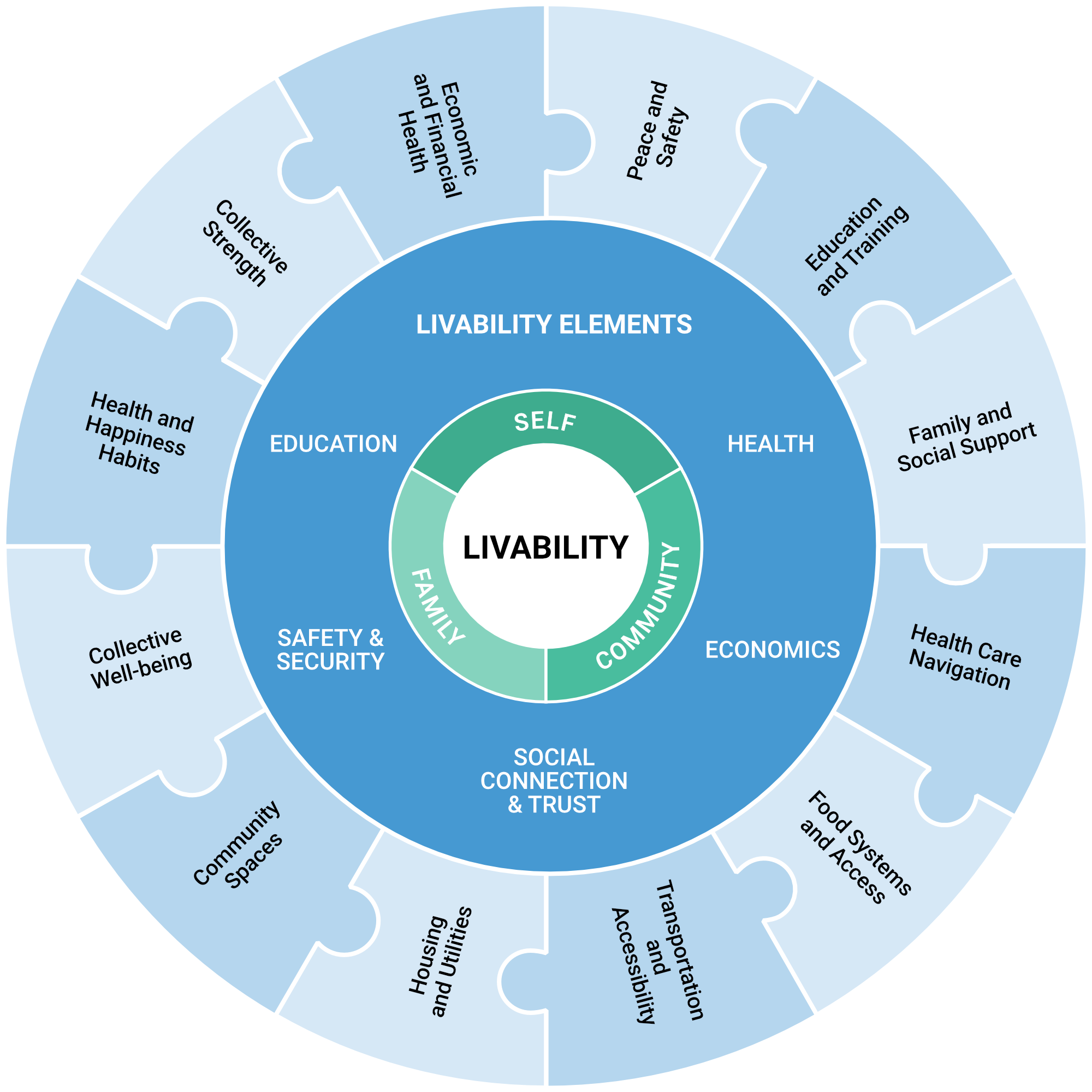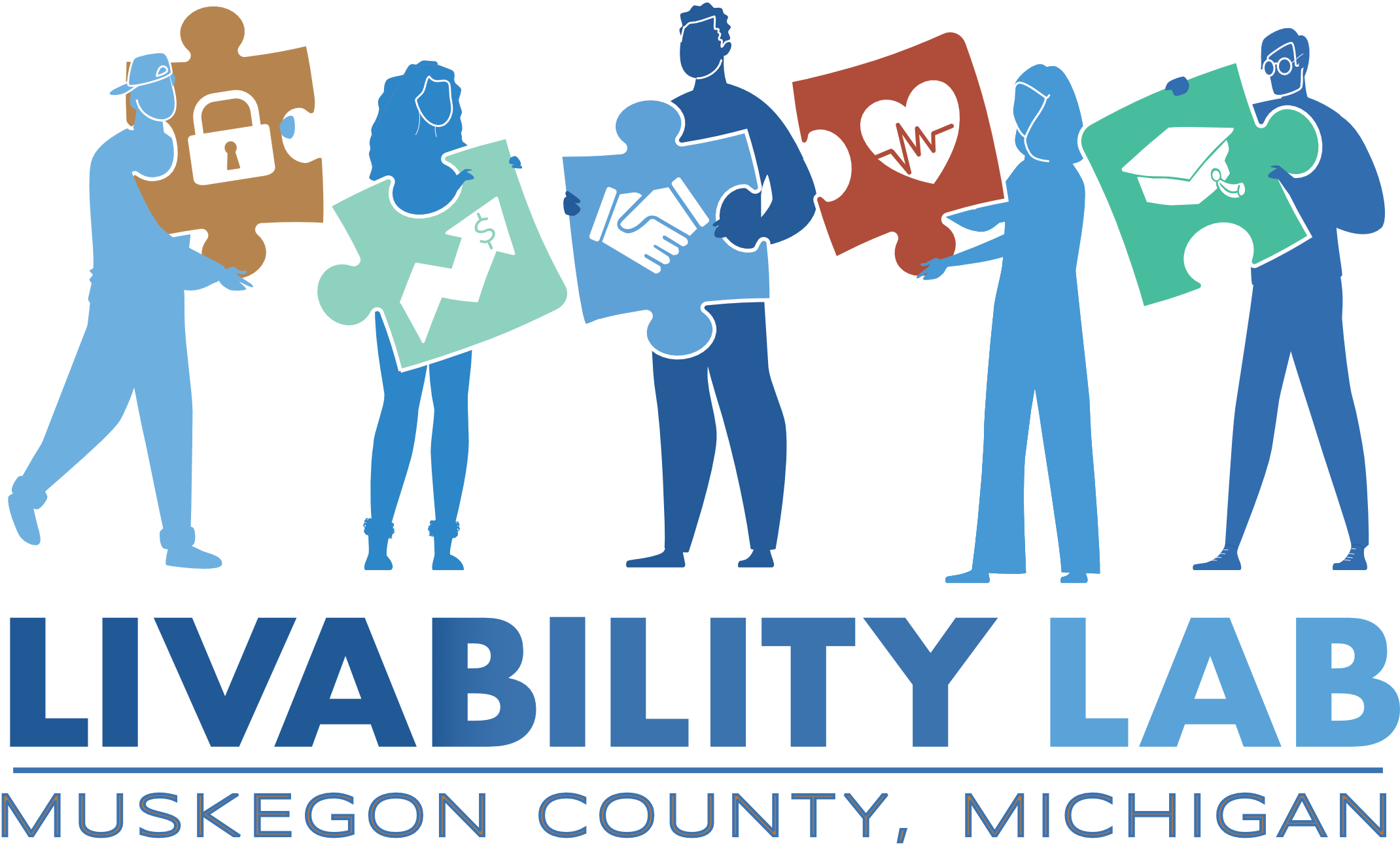About Livability Lab
- Home
- About
How It Works
Roadmap to Livability
-
Data Analysis
Using the input gathered from residents and data from local groups, the Livability Lab team learns what the community considers to be the most significant challenges in their lives.
-
Kickoff Event
The kickoff event brings together people from different sectors and attendees evaluate the data in a collaborative way. People brainstorm and share ideas, ane everyone is invited to join an action team about an issue they care about.
-
100-Day Celebration
Action teams create an audacious goal of making concrete change in just 100 days. The idea is that smaller 'wins' contribute to larger impact. After 100 days, the community comes together to celebrate their achievements!
Our Mission
Ensuring Livability for Muskegon County
Our goal is improve life in our community by listening to new ideas and working together on the things that matter most to you.
Why Attend?
Everyone who lives and works in Muskegon County is invited!
Participating in Livability Lab means you can be part of the community collaboratively working toward these goals:
- Access to Quality Healthcare
- Education and Skill Development
- Economic Support and Job Opportunities
- Safe and Supportive Neighborhoods
- Access to Healthy Foods and Nutrition Programs
- Social Connection and Inclusion
- Advocacy and Community Voice

Get Involved!
Ways You Can Make an Impact at Livability Lab
CHAMPION
After the Community Action Teams form at the kickoff event, each team chooses their own Champion. A Champion is the team leader, the person responsible for carrying the idea forward into action throughout the100-Day Challenge. Their primary responsibilities include:
- Determining team goal with group input
- Attend each team meeting during the 100-Day Challenge
- Speak about the team’s work at the Celebration Event
- The time commitment varies, based on the team’s meeting schedule and goals
COACH
Community Action Teams also need a Coach. The coach, who is assigned to a team at the kickoff event, is the person who handles the team logistics and helps them to carry out their work during the 100-day challenge. A coach’s primary responsibilities include:
- Attending three training sessions prior to kickoff
- Scheduling team meetings
- Keeping consistent communication
- Recording barriers, successes and progress for report-outs
- Time commitment is about 40 hours total
COMMUNITY ADVISORY TEAM
This behind-the scenes group meets monthly to ensure that Livability Lab events:
- Center on community voice
- Shape meaningful insights
- Expand outreach to the broader community, and
fosters inclusivity and adaptability
2025 Framework
The 2025 Livability Lab framework was developed through more than 820 resident surveys (including 30 Spanish-language surveys.) The visual representation shows how the pieces are interconnected.
-
Community Priorities
Represented by puzzle pieces in the outer circle, these are the things that need to be in place across the county to promote the Livability Elements -
Livability Elements
In the solid blue circle, these 5 elements represent what people need to thrive and prosper in Muskegon County. -
Family/Community/Self
These components in the green inner circle show that residents prioritize Livability for not just themselves but for the families, friends, and entire community. -
The Goal: Livability
Our goal is to create a system that ensures livability for everyone who lives or works in Muskegon County. Livability is the sum of things that add up to quality of life.

An Audacious Vision
Background & History
Innovative & Action-Oriented
Livability Lab began by adapting the 100-Day Challenge model for community change. This approach seeks to inspire collective action toward a common vision and places a focus on smaller 'wins' that contribute to a larger impact.
Through this process, teams form around specific issues and take 100 days to work toward achieving ambitious and concrete results.
Community-Driven & Data Informed
The 100-Day Challenge process is a community-led model, which means it is based on the idea that people are the experts on their own lives.
Through one-on-one interviews, focus groups, resident surveys, and data from local groups, the Livability Lab design team learned what Muskegon County residents consider to be the most significant challenges in their lives, and what changes could make biggest impact in the community.
Cross-Sector & Collaborative
This model has been used in other areas to tackle one specific sector or issue. But based on resident data and feedback, a broader vision for Muskegon's 100-Day Challenge came into focus.
It became clear that the best way to make an impact in Muskegon County was for people from a variety of sectors -- including business, neighborhoods, healthcare, and education -- to come together to improve "livability" for residents.



